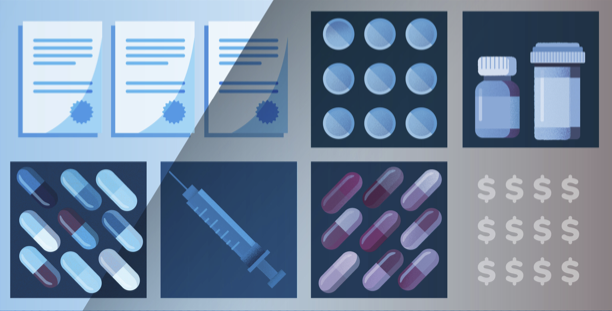As our year winds down to a close, there’s one statement we can make with confidence: patents are now firmly part of the drug pricing crisis conversation. This is no small achievement, and with a lot of important work to solve the drug patent problem lying ahead, it’s worth looking back on the last 12 months to see how we got here.
This year started with a front-page story in The New York Times that cited I-MAK’s research in exposing “How a Drug Company Made $114 Billion by Gaming the U.S. Patent System”. A month later, the Times continued to shine its sizable magnifying glass on patent abuse with another investigation revealing how Jazz Pharmaceuticals improperly listed patents on the FDA’s Orange Book to block competition.
This summer, we partnered with the American Economic Liberties Project on The Costs of Pharma Cheating. In our co-authored report, our teams revealed how the pharmaceutical industry’s abusive patenting tactics are violating America’s antitrust laws, including how improper patent listing on the FDA’s Orange Book blocks desperately needed competition.
As a result of our work and that of the access-to-medicines and anti-monopoly movements, we’ve seen historic action taken to address the improper patent listings on the Orange Book. Sen. Elizabeth Warren and Rep. Pramila Jayapal wrote to FDA Commissioner Robert M. Califf urging him to address the practice and the FTC issued a policy statement on the issue before challenging over 100 improperly listed Orange Book patents. Just recently, two drugmakers de-listed patents from the Orange Book that had blocked lower-priced epipen and asthma inhaler competitors. That’s a groundswell of activity in just a few months and a major win for patients, payers, and the American public.
To close out the year, we released The Burden of Patent Thickets, in which we detail how drugmakers extracted $158 billion out of the American healthcare system by extending patent protection on four of the leading biologic drugs: Humira, Avastin, Rituxan, and Lantus.
Then we brought together patients, policy experts, academics, investors and other stakeholders in a culminating convening to share ideas and inform our new blueprint presenting policymakers with actionable solutions to address patent thickets.
This year, we’ve been able to spur real action toward creating an equitable patent system centred on the public good. Much work remains to achieve this goal, and in 2024 we expect the pharmaceutical industry to push back even harder after the losses it’s recently suffered.
We’re ready, are you?
– Tahir
